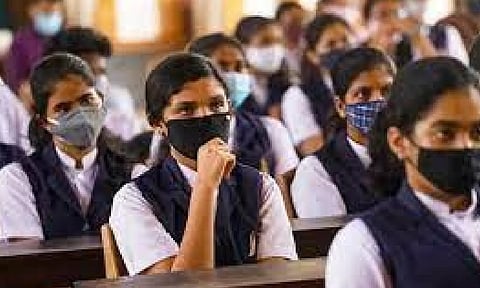

CHENNAI: The Tamil Nadu government will conduct a study on the impact of special incentive schemes to promote literacy among Scheduled Caste (SC) and Scheduled Tribe (ST) girl students across the State.
The decision comes against the backdrop of a poor literacy rate of 72% among Adi Dravidar girl students in comparison to the 80.09% literacy rate among other sections of the society.
A senior official from the Adi Dravidar and Tribal Welfare department told DT Next that initially, the survey will cover the girls of classes 3 to 8 in the government schools.
Stating that in 2022-2023, about 4.52 lakh SC/ST girl students benefited through special incentive schemes that saw an expenditure of Rs 43.49 crore, he said under the scheme, Rs 500 per annum were given to students of classes 3 to 5, Rs 1,000 for students of class 6 and Rs 1,500 for students of classes 7 and 8.
The official said the study is to assess and analyse the implementation process and measure the extent to which the scheme had benefited SC/ST girls.
“Other vital objectives include ascertaining the awareness level among the parents/guardians on this special incentive scheme, knowing the reasons for eligible students not availing of the scheme and analysing the procedure followed in the disbursement of the funds from its allocation from the Adi Dravidar and Tribal Welfare department until it reaches the beneficiary through the implementing (elementary education, school education and higher secondary) departments,” he said.
He said the survey will seek to know and suggest suitable measures to attract SC/ST girl students towards the scheme.
On data collection methodology, the official said both primary and secondary data would be utilised. “The primary data will be collected through pre-designed questionnaires during field visits. Other methods include field observations, group discussion with parents and implementing officials, and discussions with officials to elicit their view”.
The survey is likely to start by March and complete in four months, said the official.